The average cost of Lung Cancer Treatment in Thailand starts from THB 998200 (USD 28000)
Lung cancer is characterized by the formation of cancer cells in any part of the organ. Lungs play a vital role in the human body as it helps with the inhalation of pure oxygen and exhalation of carbon dioxide. When these pair of organs are affected by cancer, the breathing capacity of the person may reduce or some area of the lungs may be rendered useless. It is estimated that lung cancer is the leading cause of cancer-related deaths in the US, among both men and women.
Lung cancer treatment in Thailand is conducted by a team of highly experienced oncologists. When a patient visits the doctor with a certain set of symptoms, the doctor may order a few tests to diagnose lung cancer, These may include imaging tests, sputum cytology, and a biopsy conducted on a piece of tissue retrieved from the lung. Once confirmed, specific tests are conducted to determine the stage and extent of cancer. Accordingly, the doctor may prepare a treatment plan which may include a surgery (wedge resection, segmental resection, lobectomy, or pneumonectomy), radiation therapy, chemotherapy, radiosurgery, or immunotherapy. A combination of these treatments is often used to treat patients.
Lung cancer treatment cost in Thailand varies from one patient to the other. In fact, it solely depends on the treatment duration and the type of treatment modalities used for the elimination of cancer cells. A majority of patients are advised to undergo a surgery, which is then followed up with multiple cycles of chemotherapy and radiation therapy. Others may be advised to undergo radiosurgery, especially those who are unfit to undergo a surgery.
| Country | Cost | Local_currency |
|---|---|---|
| Greece | USD 25000 | Greece 23000 |
| India | USD 8500 | India 706775 |
| Israel | USD 20000 | Israel 76000 |
| Lebanon | USD 25000 | Lebanon 375138750 |
| Malaysia | USD 13800 | Malaysia 64998 |
| South Korea | USD 13000 | South Korea 17454970 |
| Spain | USD 32000 | Spain 29440 |
| Switzerland | USD 25000 | Switzerland 21500 |
| Thailand | USD 28000 | Thailand 998200 |
| Tunisia | USD 25000 | Tunisia 77750 |
| Turkey | USD 10770 | Turkey 324608 |
| United Arab Emirates | USD 25000 | United Arab Emirates 91750 |
| United Kingdom | USD 25000 | United Kingdom 19750 |
Treatment cost
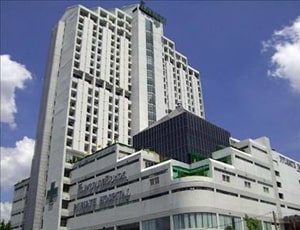
Types of Lung Cancer Treatment in Piyavate Hospital and its associated cost
| Treatment Option | Approximate Cost Range (USD) | Approximate Cost Range (THB) |
|---|---|---|
| Lung Cancer Treatment (Overall) | 27770 - 37691 | 1017652 - 1381511 |
| Surgery | 11178 - 15451 | 406702 - 544123 |
| Lobectomy | 12075 - 13600 | 438002 - 472535 |
| Pneumonectomy | 9382 - 16484 | 335561 - 589024 |
| Segmentectomy | 10333 - 13486 | 367145 - 470222 |
| Chemotherapy | 2705 - 6539 | 96833 - 238788 |
| Targeted Therapy | 3064 - 8562 | 111643 - 297627 |
| Immunotherapy | 7708 - 11414 | 279119 - 395495 |
| Radiation Therapy | 5302 - 12504 | 194758 - 439592 |
| Palliative Care | 2209 - 5617 | 81876 - 197927 |
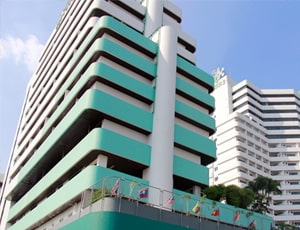
Types of Lung Cancer Treatment in Phyathai 2 International Hospital and its associated cost
| Treatment Option | Approximate Cost Range (USD) | Approximate Cost Range (THB) |
|---|---|---|
| Lung Cancer Treatment (Overall) | 27907 - 38659 | 1006471 - 1341527 |
| Surgery | 11106 - 15000 | 404602 - 551504 |
| Lobectomy | 12160 - 13470 | 437570 - 478027 |
| Pneumonectomy | 9304 - 15959 | 332866 - 580387 |
| Segmentectomy | 10120 - 13452 | 363734 - 471519 |
| Chemotherapy | 2749 - 6781 | 95970 - 239227 |
| Targeted Therapy | 3116 - 8546 | 109534 - 301859 |
| Immunotherapy | 7893 - 11148 | 281691 - 394314 |
| Radiation Therapy | 5429 - 12524 | 190002 - 430657 |
| Palliative Care | 2208 - 5529 | 80367 - 196509 |
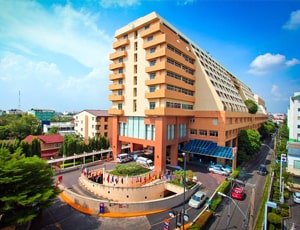
Types of Lung Cancer Treatment in Vejthani Hospital and its associated cost
| Treatment Option | Approximate Cost Range (USD) | Approximate Cost Range (THB) |
|---|---|---|
| Lung Cancer Treatment (Overall) | 27948 - 37927 | 1003106 - 1390093 |
| Surgery | 11119 - 15198 | 409715 - 534691 |
| Lobectomy | 12026 - 13389 | 442735 - 484684 |
| Pneumonectomy | 9438 - 15857 | 343561 - 574760 |
| Segmentectomy | 10121 - 13326 | 366835 - 470946 |
| Chemotherapy | 2641 - 6706 | 95694 - 237318 |
| Targeted Therapy | 3113 - 8233 | 110058 - 293285 |
| Immunotherapy | 7741 - 11351 | 286946 - 404471 |
| Radiation Therapy | 5489 - 12361 | 189184 - 434280 |
| Palliative Care | 2210 - 5458 | 80781 - 195031 |

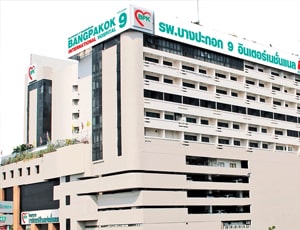
Types of Lung Cancer Treatment in Bangpakok 9 International Hospital and its associated cost
| Treatment Option | Approximate Cost Range (USD) | Approximate Cost Range (THB) |
|---|---|---|
| Lung Cancer Treatment (Overall) | 28181 - 38622 | 1007539 - 1373415 |
| Surgery | 11446 - 15075 | 407152 - 546878 |
| Lobectomy | 12132 - 13326 | 442181 - 468231 |
| Pneumonectomy | 9273 - 16515 | 338599 - 578013 |
| Segmentectomy | 10089 - 13647 | 364054 - 474992 |
| Chemotherapy | 2640 - 6720 | 95079 - 238670 |
| Targeted Therapy | 3147 - 8541 | 111082 - 304028 |
| Immunotherapy | 8024 - 11263 | 284741 - 397415 |
| Radiation Therapy | 5355 - 12107 | 194143 - 444829 |
| Palliative Care | 2251 - 5438 | 81723 - 194646 |
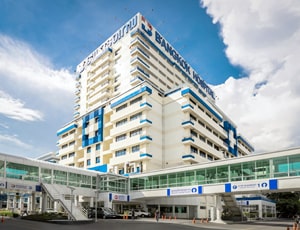
Types of Lung Cancer Treatment in Bangkok Hospital and its associated cost
| Treatment Option | Approximate Cost Range (USD) | Approximate Cost Range (THB) |
|---|---|---|
| Lung Cancer Treatment (Overall) | 27711 - 37611 | 1017599 - 1393043 |
| Surgery | 11486 - 15109 | 408849 - 554819 |
| Lobectomy | 12157 - 13549 | 436128 - 471118 |
| Pneumonectomy | 9540 - 16142 | 340643 - 581706 |
| Segmentectomy | 10196 - 13345 | 363529 - 476034 |
| Chemotherapy | 2718 - 6698 | 95914 - 239047 |
| Targeted Therapy | 3113 - 8469 | 108911 - 302499 |
| Immunotherapy | 7980 - 11210 | 275751 - 397766 |
| Radiation Therapy | 5399 - 12323 | 194976 - 442397 |
| Palliative Care | 2245 - 5422 | 79591 - 195654 |
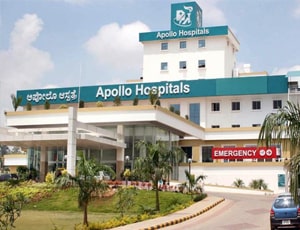
Types of Lung Cancer Treatment in Apollo Hospitals Bannerghatta and its associated cost
| Treatment Option | Approximate Cost Range (USD) | Approximate Cost Range (INR) |
|---|---|---|
| Lung Cancer Treatment (Overall) | 6707 - 8964 | 557863 - 727658 |
| Surgery | 4497 - 7753 | 366249 - 636940 |
| Lobectomy | 1696 - 6660 | 135406 - 554600 |
| Pneumonectomy | 2283 - 9097 | 186044 - 736683 |
| Segmentectomy | 1700 - 5739 | 137987 - 456963 |
| Chemotherapy | 911 - 2220 | 74447 - 184294 |
| Targeted Therapy | 1146 - 3408 | 93264 - 274316 |
| Immunotherapy | 1678 - 3926 | 138390 - 327400 |
| Radiation Therapy | 2261 - 5117 | 183945 - 424093 |
| Palliative Care | 568 - 1663 | 45246 - 139341 |
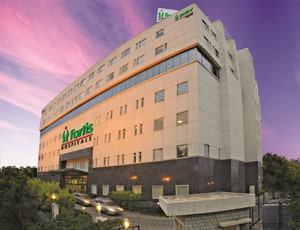
Types of Lung Cancer Treatment in Fortis Hospital and its associated cost
| Treatment Option | Approximate Cost Range (USD) | Approximate Cost Range (INR) |
|---|---|---|
| Lung Cancer Treatment (Overall) | 6067 - 8132 | 499340 - 668760 |
| Surgery | 4067 - 7076 | 333307 - 579931 |
| Lobectomy | 1530 - 6072 | 124989 - 498443 |
| Pneumonectomy | 2040 - 8108 | 165741 - 667737 |
| Segmentectomy | 1530 - 5096 | 125436 - 417622 |
| Chemotherapy | 812 - 2031 | 66290 - 166424 |
| Targeted Therapy | 1012 - 3036 | 83341 - 250527 |
| Immunotherapy | 1519 - 3542 | 124709 - 291913 |
| Radiation Therapy | 2023 - 4563 | 165869 - 376216 |
| Palliative Care | 507 - 1525 | 41618 - 124455 |
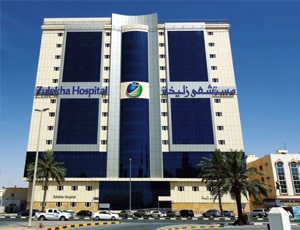
Types of Lung Cancer Treatment in Zulekha Hospital Sharjah and its associated cost
| Treatment Option | Approximate Cost Range (USD) | Approximate Cost Range (AED) |
|---|---|---|
| Lung Cancer Treatment (Overall) | 28278 - 33324 | 101191 - 125617 |
| Surgery | 11039 - 17031 | 40575 - 62789 |
| Lobectomy | 9633 - 13563 | 35340 - 48627 |
| Pneumonectomy | 9979 - 15627 | 37279 - 57284 |
| Segmentectomy | 8271 - 13772 | 30629 - 49767 |
| Chemotherapy | 2837 - 6737 | 10261 - 24753 |
| Targeted Therapy | 2238 - 9007 | 8423 - 33195 |
| Immunotherapy | 2763 - 11339 | 10275 - 41939 |
| Radiation Therapy | 3852 - 12648 | 14316 - 45177 |
| Palliative Care | 1128 - 4402 | 4075 - 16259 |
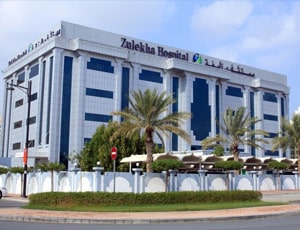
Types of Lung Cancer Treatment in Zulekha Hospital Dubai and its associated cost
| Treatment Option | Approximate Cost Range (USD) | Approximate Cost Range (AED) |
|---|---|---|
| Lung Cancer Treatment (Overall) | 27916 - 34061 | 100972 - 123126 |
| Surgery | 11033 - 16538 | 41935 - 61980 |
| Lobectomy | 9462 - 13701 | 34706 - 50262 |
| Pneumonectomy | 9982 - 15808 | 36522 - 58151 |
| Segmentectomy | 8303 - 13588 | 31075 - 48944 |
| Chemotherapy | 2826 - 6781 | 10308 - 25086 |
| Targeted Therapy | 2261 - 8921 | 8168 - 33681 |
| Immunotherapy | 2815 - 11148 | 10232 - 40984 |
| Radiation Therapy | 3971 - 12509 | 14325 - 46264 |
| Palliative Care | 1114 - 4576 | 4134 - 16330 |
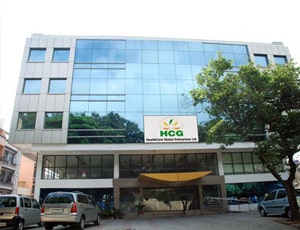
Types of Lung Cancer Treatment in HCG Kalinga Rao Road and its associated cost
| Treatment Option | Approximate Cost Range (USD) | Approximate Cost Range (INR) |
|---|---|---|
| Lung Cancer Treatment (Overall) | 6065 - 8097 | 499290 - 665468 |
| Surgery | 4065 - 7138 | 332609 - 582149 |
| Lobectomy | 1517 - 6091 | 124257 - 499223 |
| Pneumonectomy | 2026 - 8152 | 166786 - 668586 |
| Segmentectomy | 1524 - 5087 | 125335 - 417100 |
| Chemotherapy | 811 - 2029 | 66679 - 166941 |
| Targeted Therapy | 1013 - 3048 | 83278 - 248595 |
| Immunotherapy | 1523 - 3554 | 124835 - 290202 |
| Radiation Therapy | 2038 - 4557 | 166164 - 374895 |
| Palliative Care | 506 - 1515 | 41555 - 125286 |

Types of Lung Cancer Treatment in Sarvodaya Hospital and Research Centre and its associated cost
| Treatment Option | Approximate Cost Range (USD) | Approximate Cost Range (INR) |
|---|---|---|
| Lung Cancer Treatment (Overall) | 6094 - 8106 | 501189 - 667725 |
| Surgery | 4066 - 7104 | 332184 - 581279 |
| Lobectomy | 1526 - 6065 | 124391 - 500031 |
| Pneumonectomy | 2023 - 8124 | 165903 - 668777 |
| Segmentectomy | 1515 - 5083 | 125021 - 418010 |
| Chemotherapy | 815 - 2036 | 66688 - 166423 |
| Targeted Therapy | 1013 - 3043 | 83570 - 250767 |
| Immunotherapy | 1518 - 3567 | 124461 - 292533 |
| Radiation Therapy | 2028 - 4587 | 165933 - 373096 |
| Palliative Care | 505 - 1529 | 41506 - 124884 |
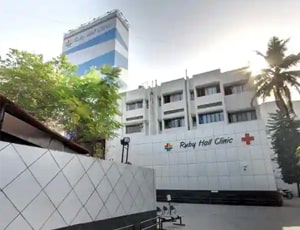
Types of Lung Cancer Treatment in Ruby Hall Clinic and its associated cost
| Treatment Option | Approximate Cost Range (USD) | Approximate Cost Range (INR) |
|---|---|---|
| Lung Cancer Treatment (Overall) | 5680 - 7559 | 463075 - 608551 |
| Surgery | 3790 - 6578 | 304372 - 536188 |
| Lobectomy | 1382 - 5531 | 114840 - 454780 |
| Pneumonectomy | 1872 - 7371 | 152068 - 614857 |
| Segmentectomy | 1399 - 4645 | 115854 - 387597 |
| Chemotherapy | 751 - 1845 | 60424 - 154467 |
| Targeted Therapy | 948 - 2806 | 77169 - 229357 |
| Immunotherapy | 1381 - 3300 | 116258 - 268816 |
| Radiation Therapy | 1857 - 4174 | 154261 - 349786 |
| Palliative Care | 470 - 1396 | 38635 - 115143 |
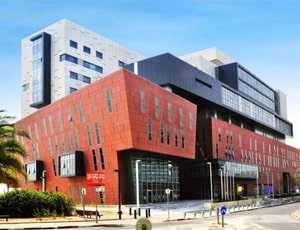
Assuta Hospital located in Tel-Aviv, Israel is accredited by JCI. Also listed below are some of the most prominent infrastructural details:
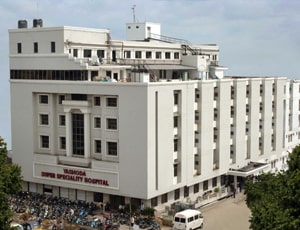
Types of Lung Cancer Treatment in Yashoda Hospital, Malakpet and its associated cost
| Treatment Option | Approximate Cost Range (USD) | Approximate Cost Range (INR) |
|---|---|---|
| Lung Cancer Treatment (Overall) | 6088 - 8145 | 499546 - 665460 |
| Surgery | 4073 - 7104 | 333389 - 583820 |
| Lobectomy | 1516 - 6097 | 125034 - 498966 |
| Pneumonectomy | 2033 - 8158 | 165734 - 663874 |
| Segmentectomy | 1521 - 5085 | 124516 - 414728 |
| Chemotherapy | 808 - 2025 | 66463 - 165991 |
| Targeted Therapy | 1019 - 3051 | 83143 - 249949 |
| Immunotherapy | 1522 - 3563 | 124910 - 292082 |
| Radiation Therapy | 2036 - 4550 | 165981 - 372883 |
| Palliative Care | 507 - 1517 | 41581 - 124264 |
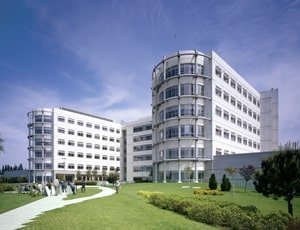
Types of Lung Cancer Treatment in Anadolu Medical Center and its associated cost
| Treatment Option | Approximate Cost Range (USD) | Approximate Cost Range (TRY) |
|---|---|---|
| Lung Cancer Treatment (Overall) | 11435 - 13231 | 340690 - 415060 |
| Surgery | 6735 - 10236 | 204868 - 311134 |
| Lobectomy | 3873 - 9150 | 120819 - 267299 |
| Pneumonectomy | 4457 - 11438 | 133597 - 333431 |
| Segmentectomy | 3314 - 8044 | 101318 - 234657 |
| Chemotherapy | 1135 - 2831 | 34331 - 86468 |
| Targeted Therapy | 1656 - 3923 | 51343 - 117367 |
| Immunotherapy | 2229 - 4444 | 67695 - 133933 |
| Radiation Therapy | 2862 - 6108 | 83961 - 187963 |
| Palliative Care | 1107 - 3374 | 33205 - 102572 |
DOCTORS IN 12 SPECIALITIES
FACILITIES & AMENITIES
Lung cancer is an uncontrolled growth of cells that start off in the lungs. Usually, lung cancer starts in the cells that line the air passages. Instead of developing into healthy lung tissue, the cells divide rapidly and form tumours.
Lung cancer can grow and spread beyond the lung to reach other parts of the body through metastasis. Lung cancers can begin in any part of the lung, but 90 percent of lung cancers begin in the epithelial cells, which are the cells lining the larger and smaller airways also known as bronchi and bronchioles.
This is the reason why lung cancers are sometimes called bronchogenic cancers or bronchogenic carcinomas. Lung cancer is the most common cancer in the world, among both men and women. It is the leading cause of cancer deaths worldwide.
Long-term smoking is the main cause of lung cancer. After smoking, genetic factors and exposure to radon gas, asbestos, second-hand smoke or other forms of air pollution can also increase the risk of lung cancer.
There are two major types of lung cancers, based on the appearance of lung cancer cells under the microscope:
It is necessary to determine the stage of lung cancer by finding out how far cancer has spread, before initiating treatment of lung cancer.
The following are the four lung cancer stages of NSCLC:
After the determination of stage, treatment of lung cancer starts with choosing the best suitable option for the patient. However, there is usually no single treatment for lung cancer. So the patient often receives a combination of therapies and palliative care.
Lung cancer symptoms may vary, depending upon where and how widespread the tumour is. A person with lung cancer may have following lung cancer symptoms:
The treatment of lung cancer may include the following modalities:
Surgery is the best treatment if the lung cancer is in its early stages. In the early stages, it is possible to cure a patient completely by removing the tumor and the nearby lymph nodes. But after cancer has spread, it is nearly impossible to remove all of the cancer cells with the help of surgery.
There are some specific types of surgical procedures for different location and kinds of lung cancers, such as wedge resection of the lung (removal of a portion of one lobe), lobectomy (removal of one lobe), pneumonectomy (removal of an entire lung) and lymphadenectomy (removal of lymph nodes in the region of the lungs). After the surgery, margin tissues are further studied to see if cancer cells are present or not.
Lung cancer surgery is a major surgical procedure that requires hospitalization, general anesthesia, and follow-up care for a few weeks to several months. It also carries side effects like any other surgery, including complications related to bleeding, infection, and general anesthesia.
This treatment uses high-energy X-rays or other types of radiation to destroy or shrink lung cancer tumors. Radiation therapy can be given as a curative therapy, palliative therapy, or as adjuvant therapy combined with surgery or chemotherapy.
Radiation therapy damages the molecules that make up the cancer cells. However, it can damage the normal, healthy tissues. But nowadays improved technology can focus the radiation on precise locations for certain lengths of time, thus reducing the risk of damage to the surrounding healthy tissues.
Chemotherapy is a strong medication treatment, which interferes with the cell division process and damage proteins or DNA to reduce cancer cells. NSCLC and SCLC, both types of lung cancers can be treated with chemotherapy. Chemotherapy might be given in the form of pills, intravenous infusion, or as a combination of both.
However, drugs used in chemotherapy also kill normally dividing cells in the body that may lead to unpleasant side effects. Some of the common side effects of chemotherapy are vomiting, diarrhea, appetite loss, hair loss, fatigue, anemia, infections and more. These side effects may be felt temporarily during treatment, and several drugs exist to help patients cope with the symptoms.
Drugs used in this treatment work by targeting specific abnormalities in the cancer cells. Some of the drugs in this treatment can also strengthen the activity of the immune system against cancer cells. But mostly this treatment only works in people whose cancer cells show certain genetic mutations.
Ask your healthcare adviser for the best multiple options and choose the one that meets your expectations
The cost of Lung Cancer Treatment in Thailand starts from $28000. While there are wide range of hospitals offering Lung Cancer Treatment, international patients should always seek Healthcare Accreditation Institute, JCI-Certified Hospitals in Thailand for the best results.
The cost of Lung Cancer Treatment in Thailand may differ from one medical facility to the other. The Lung Cancer Treatment package cost usually includes all the expenses related to pre and post surgery expenses of the patient. Typically, the package cost of Lung Cancer Treatment in Thailand includes the expenses related to the surgeon's fee, anesthesia, hospital, meals, nursing and ICU stay. There are many things that may increase the cost of Lung Cancer Treatment in Thailand, including prolonged hospital stay and complications after the procedure.
There are several best hospitals for Lung Cancer Treatment in Thailand. The following are some of the most renowned hospitals for Lung Cancer Treatment in Thailand:
After Lung Cancer Treatment in Thailand, the patient is supposed to stay in guest house for another 45 days. This time frame is important to ensure that the surgery was successful and the patient is fit to fly back.
There are certain additional cost that the patient has to pay apart from the Lung Cancer Treatment cost. The per day cost in this case may start from USD 50 per person.
There are many cities that offer Lung Cancer Treatment in Thailand, including the following:
Patients can also avail to attend a video teleconsultation with the Lung Cancer Treatment surgeon in Thailand. the following are some of the top doctors offering Lung Cancer Treatment in Thailand:
| Doctor | Cost | Schedule Your Appointment |
|---|---|---|
| Dr. Saipin Tangkaratt | USD 130 | Schedule Now |
| Dr. Suchart Chaimuangraj | USD 81 | Schedule Now |
| Dr. Voratape Kijtavee | USD 81 | Schedule Now |
The patient has to spend about 5 days in the hospital after Lung Cancer Treatment for proper recovery and to get clearance for discharge. During the recovery, the patient is carefully monitored and control tests are performed to see that everything is okay. If required, physiotherapy sessions are also planned during recovery in hospital.
There are more than 4 hospitals that offer Lung Cancer Treatment in Thailand. These hospitals have proper infrastructure for the treatment of patients who require kidney transplant. Apart from good services, the hospitals are known to follow all standard and legal guidelines as dictated by the local medical affairs body or organization.
Some of the top medical specialists for Lung Cancer Treatment in Thailand are: